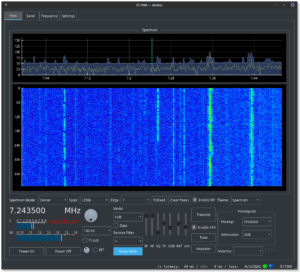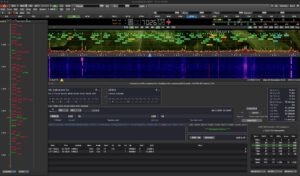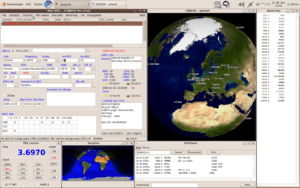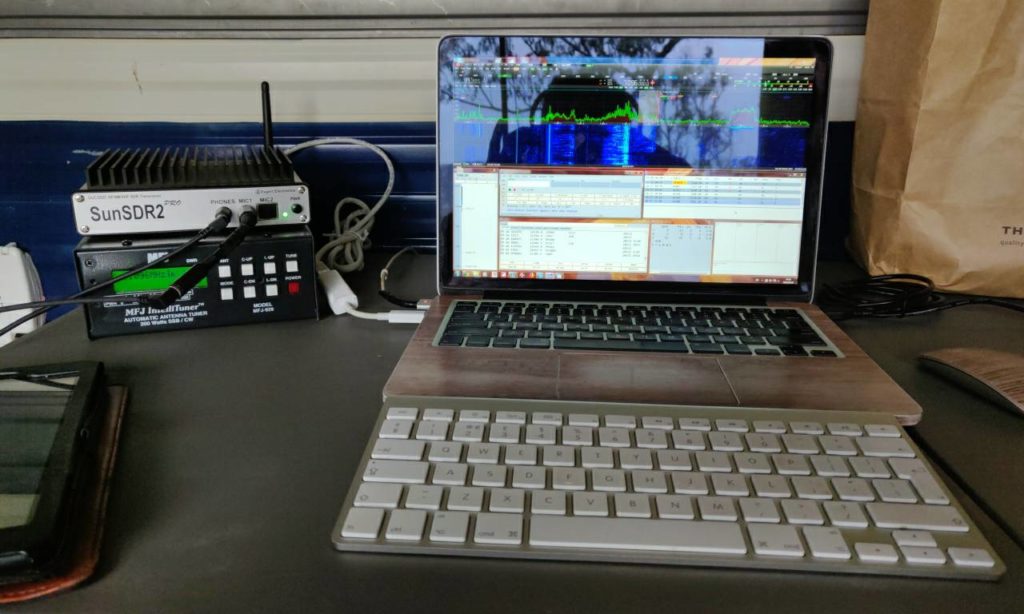Kategória EXPLORER bola vytvorená s cieľom umožniť účasť amatérov v CQ WW Contest a zároveň tvorivo experimentovať s internetovo prepojenými stanicami a inými novými technológiami. Cieľom tejto kategórie je podporiť inovácie v prevádzkových stratégiách, dizajne staníc a prispôsobovaní technológií.
Základné pravidlá CQ WW DX Contestu sa vzťahujú na obdobie súťaže, výmeny kódu a bodovania. Okrem súčasných pravidiel sa v kategórii EXPLORER zahŕňa nasledovné:

1. Cieľ: Cieľom kategórie EXPLORER je podporiť inovácie v oblasti prevádzkových stratégií, dizajnu staníc a prispôsobovania technológií.
2. Kategórie (len vysoký výkon, kde celkový výkon nesmie prekročiť 1500 wattov):
a) Jeden operátor, v ktorých jeden licencovaný rádioamatér slúži ako riadiaci operátor, ktorý vykonáva alebo dohliada na všetky prevádzkové a záznamové funkcie.
b) Viac operátorov, v ktorom viacero operátorov vykonáva alebo dohliada na všetky prevádzkové a záznamové funkcie. Členovia tímu viacerých operátorov môžu pracovať z rôznych miest.
3. Pomoc pri nadväzovaní QSO a získavanie QSO: Používanie systémov upozornenia na QSO pomocou paketového rádia, internetu, miestnych alebo vzdialených zariadení typu skimmer
zariadení, internetových chatovacích miestností, živých prenosov na sociálnych sieťach atď. je povolené v kategóriách pre jedného operátora aj pre viacerých operátorov. Samostatné vyhľadávanie alebo žiadanie byť spotovaný však nie je povolené. Všetky spojenia sa musia uskutočniť vzduchom.
4. Miesta: Všetky účastníci môžu využívať viacero vysielacích a/alebo prijímacích miest.
Všetky vysielacie miesta musia byť v jednej krajine a v jednej CQ zóne. Vzdialené prijímacie miesta sa môžu nachádzať kdekoľvek.

5. Vysielanie: všetky QSO uskutočnené v rámci kategórie Explorer musia používať rovnaký volací znak. Na danom pásme je v každom čase povolený jeden vysielaný signál bez ohľadu na miesto. Maximálna šírka pásma signálu nesmie prekročiť normálnu šírku pásma jedného hlasového SSB (pre SSB víkend) alebo CW (pre CW víkend) signálu. To zakazuje signály s viacerými nosnými alebo časovo multiplexné signály, ktoré zaberajú viacero kanálov v jednom pásme. Takisto nie je povolené zaberať dve frekvencie v jednom pásme, a to aj v prípade, že striedané. Napríklad nie je možné je povolené mať „spustené“ stanice na viacerých frekvenciách v tom istom pásme prelínajúc ich CQ.
6. Obsluha (obsluhy): Zodpovednosť za ovládanie nesie človek, ktorého úlojou je zabezpečiť, aby sa pred vysielaním prijali bežné bezpečnostné opatrenia, ako je napríklad počúvanie, aby sa zistilo, či je frekvencia voľná pred zavolaním CQ. Toto je rozhodujúce pri používaní automatizovaných „robotických“ staníc. Každá stanica, u ktorej sa zistí, že spôsobuje rušenie nedodržaním tohto pravidla, bude diskvalifikovaná a operátor môže byť diskvalifikovaný z účasti na CQWW DX Conteste v nasledujúcom roku. Všetky cezhraničné vzdialené prevádzky musia byť v súlade s predpismi v krajine, v ktorej sa nachádza vysielacie pracovisko (pracoviská).

7. Odoslanie denníkov: Logy sa musia odosielať prostredníctvom uploadu na cqww.com. Logy musia byť vo formáte Cabrillo a musia obsahovať riadok: KATEGÓRIA – STANICA: EXPLORER.
8. Ocenenia: Víťazný súťažiaci v kategórii pre jedného a viacerých operátorov dostane plaketu. Okrem toho budú ocenené aj práce, ktoré preukážu významnú mieru inovácie, môžu podľa uváženia komisie Súťažného výboru CQWW získať špeciálne plakety
9. Klubové výsledky: logy v tejto kategórii nie sú oprávnené prispieť svojím CQWW skóre klubu v klubovej súťaži.
